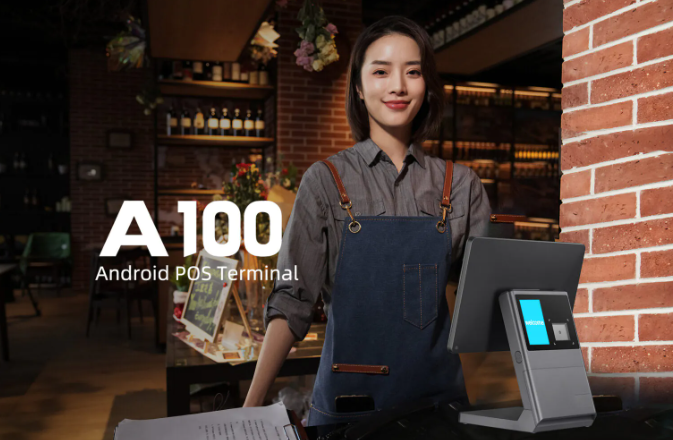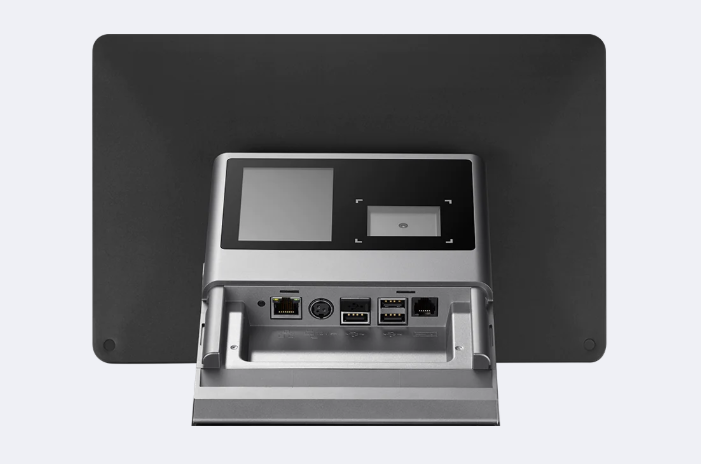What is a POS Terminal? A POS terminal (point of sale terminal) is a device that allows businesses to process transactions, accept payments, and manage sales efficiently. In simple terms, a POS terminal machine is the modern replacement for the traditional cash register, offering advanced features like digital payments, real-time reporting, and inventory management. According to Statista, the global POS terminals market size exceeded $103 billion in 2023 and is projected to grow steadily due to the surge in digital transactions. For businesses, understanding what does a POS terminal do is critical for operational efficiency and customer satisfaction.
POS Terminal Definition
POS Terminal Meaning Explained
A POS terminal is an electronic device that enables merchants to accept card payments, mobile wallets, and even contactless methods. In retail, it serves as the central POS station where transactions occur. Other common terms include posterminal, epos terminal, payment POS terminal, or simply POS device.

What Does a POS Terminal Do?
A POS terminal system goes beyond payments. It:
- Authorizes and processes credit/debit card transactions.
- Records sales and issues receipts.
- Tracks inventory in real time.
- Integrates with accounting software.
- Supports loyalty programs and digital wallets.
Essentially, what does a POS machine do is not just payment—it powers the whole customer checkout experience.

How a POS Terminal Works
How Does a POS Terminal Process Credit Card Payments?
When a customer swipes, taps, or inserts a card into a credit card POS terminal:
- The terminal POS system captures card data.
- It sends encrypted details to the payment processor.
- The processor communicates with the issuing bank.
- The bank approves or declines the payment.
- The POS terminal device confirms the transaction within seconds.
POS Terminal Setup Guide for Beginners
- Step 1: Choose a POS terminal supplier like Elanda.
- Step 2: Connect the device to the internet (wired or wireless).
- Step 3: Integrate it with your POS station software.
- Step 4: Train staff on operating the terminal POS system.
- Step 5: Start accepting card and digital wallet payments.
Types of POS Terminals

Traditional vs Mobile POS Terminal
- Traditional POS terminals are stationary devices, often used in supermarkets or department stores.
- Mobile POS terminals (mPOS) allow staff to process payments anywhere, boosting flexibility.
Cloud-Based POS Terminal
A cloud POS terminal system connects directly to online servers. This ensures:
- Real-time data synchronization.
- Multi-location sales management.
- Lower hardware costs compared to POS terminal all in one setups.
POS Terminal vs Other Payment Solutions
POS Terminal vs Cash Register
- Cash register: Limited to cash handling and basic receipt printing.
- POS terminal: Handles card payments, digital wallets, analytics, and inventory.
POS Terminal vs Payment Gateway
- POS terminal hardware: Physical device at the point of sale.
- Payment gateway: Online solution for e-commerce websites.
Businesses often integrate both for omnichannel retail.
Choosing the Right POS Terminal
Best POS Terminals for Small Businesses
Small businesses need affordable, reliable, and user-friendly POS machines. Solutions like Elanda’s all-in-one POS terminals offer low startup costs and easy setup.
Factors to Consider: Cost, Security, Integration
- Cost: Compare upfront price and transaction fees.
- Security: Ensure PCI compliance and encryption.
- Integration: Compatibility with accounting software, CRM, or e-commerce platforms.
Latest POS Terminal Trends in 2025
Emerging Features in Modern POS Terminals
- Contactless & mobile payments (Apple Pay, Google Pay).
- AI-powered analytics for sales forecasting.
- All-in-one POS stations with touchscreen displays.
Future of Cloud and Mobile POS Systems
By 2027, over 80% of retail businesses are expected to use cloud-based POS terminals. Portable solutions like Pay Anywhere point of sale and Amazon point of sale systems are expanding access worldwide.
Conclusion
A POS terminal is no longer just a payment machine; it is a comprehensive POS terminal system that empowers businesses with speed, security, and data-driven insights. From traditional POS stations to cloud-based terminals, the technology is evolving rapidly. With trusted providers like Elanda, businesses can select the right POS terminal hardware to stay competitive in 2025 and beyond.
FAQs
1. What is the difference between a POS system and a POS terminal?
A POS terminal is the hardware, while a POS system terminal includes the software, network, and integrations.
2. What is POS machine and how it works?
A POS machine works by capturing payment data, sending it to banks via a payment processor, and confirming transactions.
3. Can a POS terminal accept digital wallets like Apple Pay or Google Pay?
Yes, modern EPOS terminals support NFC for digital wallets.




